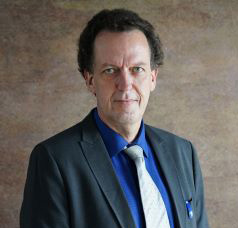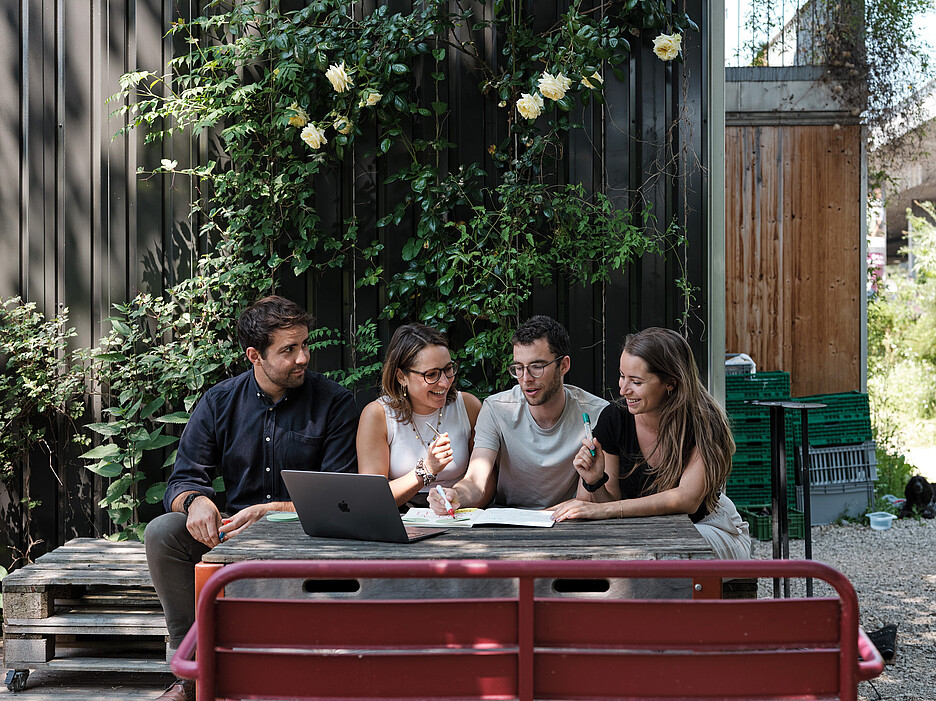
Making the food sector more regenerative
With its new degree programme, the ZHAW wants to promote innovative ways of thinking and working in the food industry. The Master of Science in Preneurship for Regenerative Food Systems (PREFS) has an interdisciplinary structure and, thanks to its open curriculum, adapts to the needs of students.
The food sector and the agricultural industry, in particular, have to be innovative, says Thomas Bratschi, Head of Business Area Development at the School of Life Sciences and Facility Management. Otherwise, they would not be in a position to overcome the economic, environmental and social challenges of our time. Food technologist Maya Ladner shares his view, stating that if we are to counter global problems such as climate change, hunger and the loss of biodiversity, new approaches are required. “We need more innovative and more regenerative food systems.”
Bratschi and Ladner have initiated and put together the new "Master of Science in Preneurship for Regenerative Food Systems" degree programme. The aim of the programme is to provide a launchpad for people to rethink existing business models and find regenerative solutions. “The students should develop into preneurs who think and act in a networked manner,” says programme director Maya Ladner.

“Allowing chaos to reign can be a valuable exercise.”
Transforming the sector will only be possible by bringing together the expertise and technologies of different disciplines, emphasises Thomas Bratschi. The Master’s programme, which the ZHAW has been offering since spring 2022, therefore has an interdisciplinary design. It provides knowledge from the subject areas of “business and preneurship,” “food systems,” “sustainability and regeneration,” “natural science,” “innovation,” and “digitalisation,” while also training the personal and social skills of participants. “These skills are often neglected in teaching, meaning they are then also lacking in the working world,” notes Ladner.
New at the ZHAW: a programme without fixed contents
The Master’s programme is characterised by its open curriculum. Some of the content of the compulsory modules is not fixed from the outset, while the choice of elective modules is extensive. Students can therefore structure the programme in line with their individual needs. Such flexibility is new at the ZHAW and still involves a number of administrative and didactic adjustments. Students are provided with a great deal of room for their own ideas. “Allowing chaos to reign can be a valuable exercise,” says Maya Ladner, who explains that new approaches are designed and discussed as part of this process before being pursued further or dropped. “Setting priorities and developing new things takes time.” Over the course of four semesters, the participants push ahead with their own projects. To do so, they form teams in which different disciplines are represented.

“I am impressed with just how dynamic these young people are in their approach to doing things.”
“Nowhere else in Switzerland is there a comparable approach,” says Maya Ladner. The Master’s programme is also attracting interest from other universities. “We are repeatedly being invited to share our experiences.” And these are predominantly positive. The programme started for a second time in spring and there are now 37 people studying in this format, most of whom have a strong link to the food sector. They hold degrees in environmental sciences, economics and food technology. There are also participants who have transitioned from other disciplines. The programme director reports that some participants have already come forward with relatively concrete startup ideas at the outset.
Supporting food companies in becoming more sustainable

Together with three other students, Lena Götsch is setting up an association to help food companies become more sustainable. “We want to start at the product level and encourage food designers to be more environmentally conscious overall when conjuring up their creations,” she explains. In an initial phase, the group wants to offer workshops, among other things. While the topic of sustainability is very present in people’s minds at the moment, it is also easy to lose an overview, says the student, who works as a food consultant at Betty Bossi.
She finds it an enriching experience to exchange ideas with colleagues from different professional fields at the ZHAW and shares that “the interdisciplinary and regenerative approach taken by the Master’s programme appealed to me immediately.” Her team is currently holding discussions with representatives from the industry. And in 2024, they want to launch pilot projects with industry partners. “There is definitely a market for such a service,” says programme director Maya Ladner, who points to the fact that legal requirements and the desire of customers for sustainable products is increasing continuously.
Great opportunities in the professional world
Programme director Thomas Bratschi mentions the wide scope of the topics pursued by the teams, ranging from vertical farming and edible gardens to net-positive meat. “I am impressed with just how dynamic these young people are in their approach to doing things,” he says, backing up this viewpoint by sharing that some have already arranged a large part of the required financing, while others have received substantial orders. “They tick all the boxes to succeed in practice.”
0 Comments
Be the First to Comment!